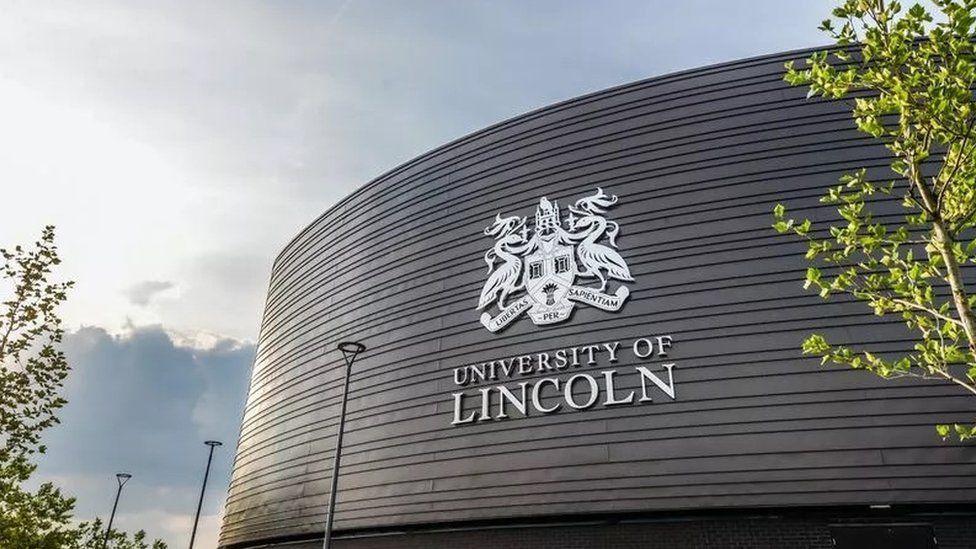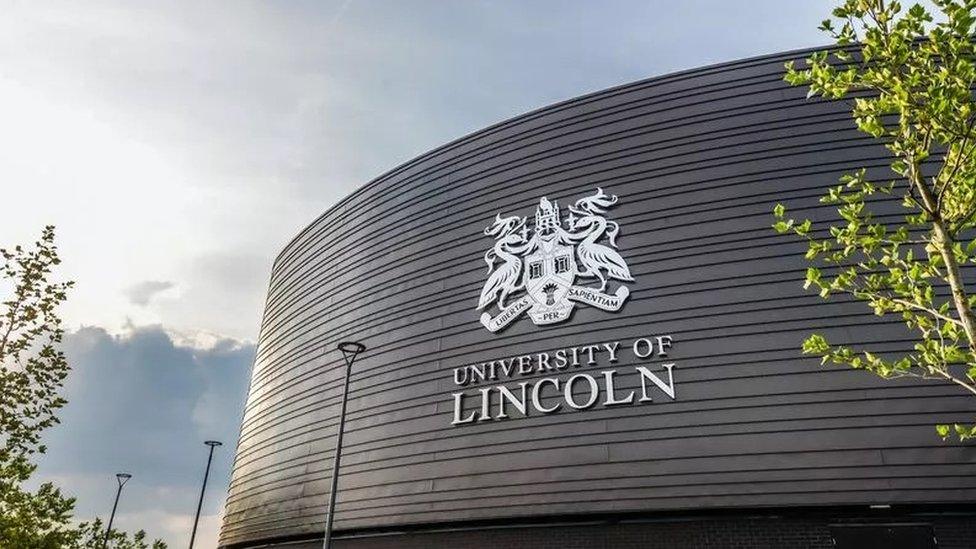University facing £30m deficit blames government

Vice chancellor Prof Neal Juster said the university had been forced into making changes
- Published
The vice chancellor of the University of Lincoln has blamed government policies for its £30m shortage.
Prof Neal Juster told the BBC "a perfect storm" was forcing him to make savings, including job cuts.
He said the problem was not specific to just his university, but a lecturers' union said University of Lincoln managers had to accept they had made mistakes.
The government said it continued to provide "significant financial support" to universities.

The university currently has 18,000 students of which 23% come from overseas
The university is forecast to be facing a £30m deficit next year, around 11% of its turnover if it does not take action now.
Speaking for the first time since budget cuts were announced, Prof Juster said the freeze in tuition fees since 2017 along with rising inflation had placed a financial burden on the university.
He said the number of overseas students, an important source of income, will drop "by between 20 and 40%" in September.
But he insisted the university's management was not to blame.
"Every university in the UK has made roughly the same choices" he said.
'Not to blame'
The Lincoln branch of the University and College Union (UCU) disagreed and said management was to blame.
Acting local UCU chair, Dr Rob Dean, said university leaders had to accept they "made mistakes".
"Are all universities facing a £30m deficit? No they aren't." he said.
"No-one was expecting tuition fees to go up, so was there a business model in which they were expected to?
"Equally, the question about international students: was there a business expectation that the numbers would keep rising?," he added.
The UCU is balloting its members on striking after the union claimed compulsory job losses had not been ruled out.
The university has started a voluntary redundancy scheme to try to shed 220 jobs, about 10% of the total.

Dr Rob Dean, from the Lincoln branch of the UCU, said the university's management had made mistakes
Responding to the university's claim that government policy was to blame for the deficit, a government spokesperson said: “We continue to provide significant financial support of nearly £6bn per year to the higher education sector, plus more than £10bn per year in tuition fee loans.
"The Office for Students’ latest report also stated that the overall financial position of the sector was sound.
“While British universities are independent from government, we are clear that domestic students should be the priority and that the purpose of student visas is education rather than immigration," they added.
Follow BBC Lincolnshire on Facebook, X (formerly Twitter), external, and Instagram. Send your story ideas to eastyorkslincs.news@bbc.co.uk, external
Related topics
- Published18 April 2024

- Published18 January 2024

- Published24 May 2023
